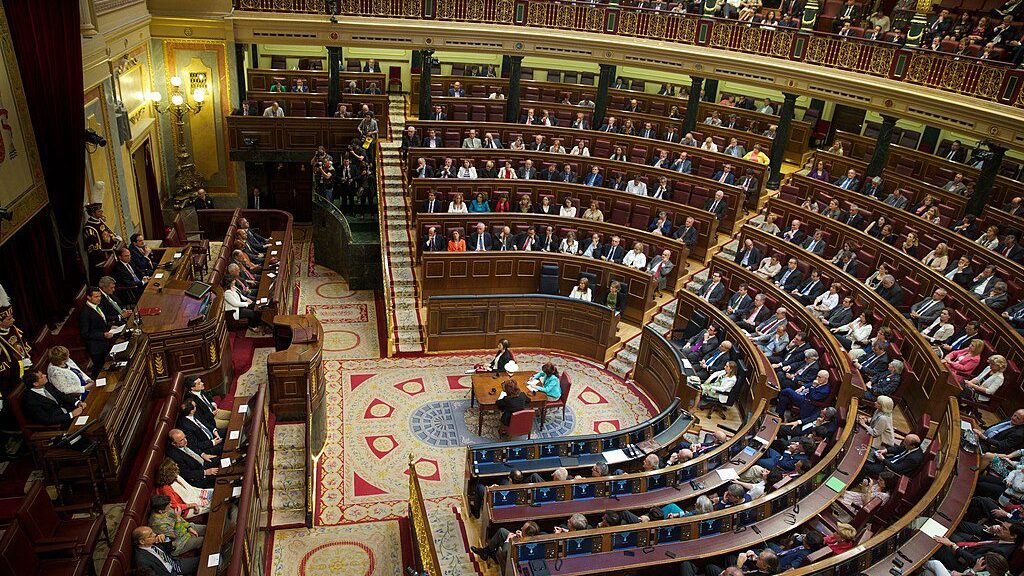
Photo: Congress of Deputies, CC BY 2.0, via Wikimedia Commons
Spain’s lower house has voted in favor of a bill that, if also passed in the Senate, will see half a million illegal migrants regularized, potentially opening a pathway to Spanish citizenship.
The bill passed in the Congress of Deputies last week with the support of all parties in the left-liberal government as well as the center-right opposition Partido Popular (PP) who, after signaling they would oppose the measure, reversed their position at the last moment, leaving the conservative, sovereigntist VOX party as the sole dissenting voice.
During a debate that preceded the vote, VOX MP and parliamentary spokesman Rocio De Meer laid out the party’s position on the legislation, saying:
We want Spain to remain Spain, not Morocco, nor Algeria, nor Nigeria, nor Senegal. And this is not hatred nor is it xenophobia, nor racism, it is pure common sense.
The 34-year-old lawmaker warned that regularizing half a million illegal migrants would inevitably have a “pull effect” and encourage further mass migration into Spain, potentially resulting in the importation of “jihad, the persecution of Christians, and the discrimination of women.”
The PP, for its part, justified its change of heart by saying it simply wanted to “open up a debate” on the issue of “extraordinary regularization.”
Socialist spokesman Patxi López defended his party’s position, asserting that immigration should be faced in “an intelligent and reasonable way.” He argued that a country like Spain “needs thousands of immigrants” to sustain its current levels of productivity, and added that the bill will likely undergo some amendments.
If the “extraordinary regularization” is indeed executed, it would mark the seventh in Spanish history. Others, under both socialist- and PP-led governments, took place in 1991, 1996, 2000, 2001, and 2005, and collectively resulted in the regularization of over one million illegal immigrants.
VOX MEP Jorge Buxadé, the head of the party’s delegation in the European Parliament, remarked on the legislation in comments given to the Spanish press in Seville on Monday, April 15th, calling it a “disaster” and an “attack on European law.” For him, “extraordinary regularizations should be prohibited throughout the European Union.”
The MEP drew attention to the fact that Spain already has had “many experiences with extraordinary regularizations with the Partido Popular and the Socialist Party,” and noted that because of this “right now … there are 7.5 million foreigners of whom only 2.5 million work.”
The impact of the legislation, if passed, is “not known,” Buxadé argued, since the number of illegal migrants who could qualify for regularization could be considerably higher than the 500,000 discussed in parliament. The number may be as high as “600,000 or 700,00,” he said.
Buxáde rebuked the “major parties” for their “collaboration with the separatists,” and plainly stated that “all calls for illegal immigration are an attack on our coexistence and our security.”
The lower house will now examine the text which could undergo modifications or additions presented by parliamentary groups before it is sent to the upper house for final approval. If it makes it to the Senate, where 260 of the 266 seats are occupied by the Socialists, its regionalist allies, and Partido Popular, the likelihood of its passing appears to be high.
